While no food can replace a toothbrush, if you’re prone to cavities, snacking (especially grazing over long periods of time like when studying), can be a concern for your oral health. But certain foods can actually help prevent cavities, or at the very least, won’t cause them. Nibble away worry free with these fine foods, and be nice to your teeth. After all, your teeth allow you to eat, so treat them with care!
1. Sugar-free Xylitol Gum
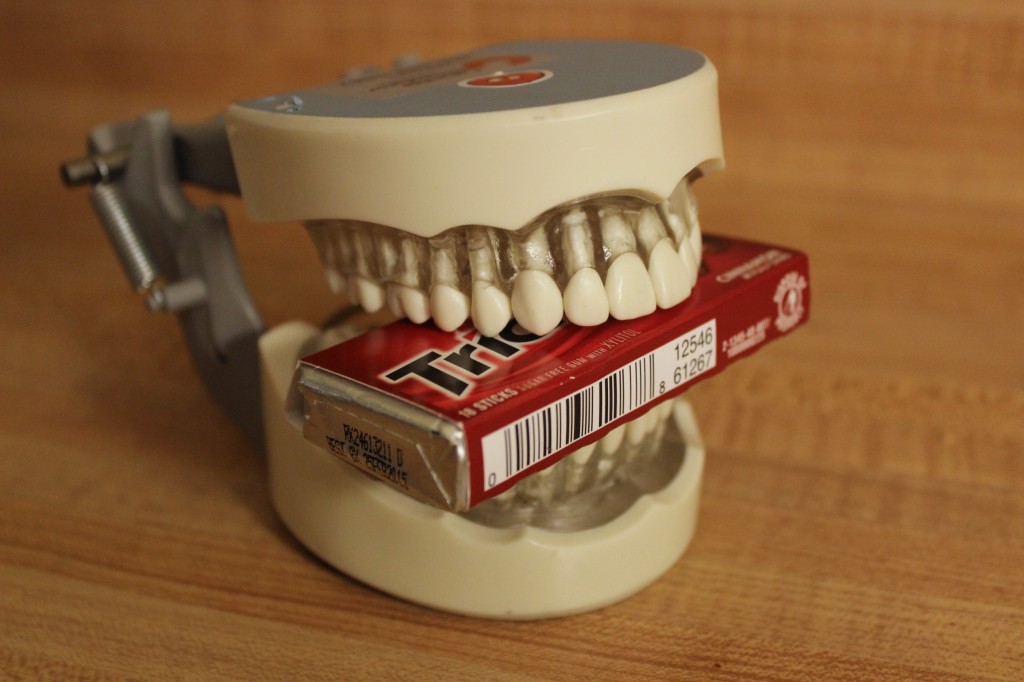
Photo by Katherine Baker
Gum can do more than freshen your breath; it can fight cavities too! The key word to look for on the package and ingredient list is xylitol. Xylitol is a natural sweetener derived from fibrous parts of plants and prevents cavity-causing bacteria from sticking to teeth, and reduces plaque on the tooth surface. It also helps neutralize the acid that builds in the mouth after eating. Acidic environments breed cavity-causing bacteria, and xylitol helps create an environment that prevents that growth. Any gum with the American Dental Association (ADA) symbol has been scientifically proven to reduce cavities, making for an easy and effective way to protect your teeth when brushing is inconvenient. If you don’t care for gum, other xylitol products, like gum and lollipops, are also available on Amazon.
2. Cheese
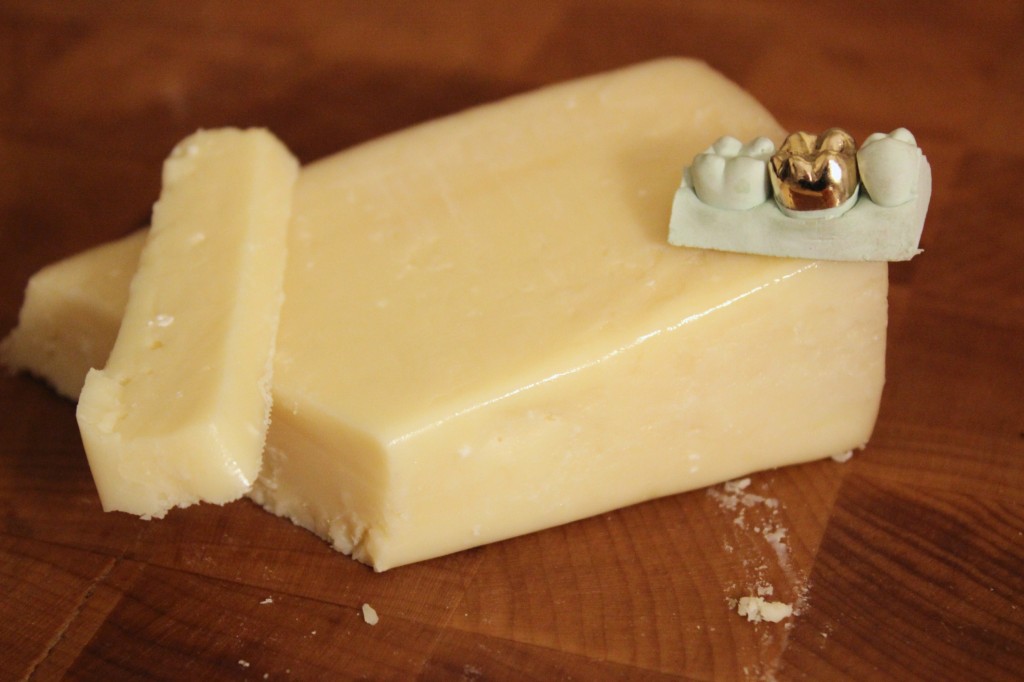
Photo by Katherine Baker
Here’s yet another reason to love cheese: it’s one of the best foods you can eat for your oral health. Not only is it low in sugar and high in calcium, it contains high amounts of casein, which is a milk protein that fortifies and remineralizes the surface of teeth. Moreover, according to the Academy of General Dentistry, it helps restore the pH levels in the mouth. Our mouths are naturally acidic environments that become even more acidic after a meal. Cheese helps saliva neutralize the extra acid after eating and restore a more balanced pH. Eating a piece of cheese at the end of the meal can be protective, so go ahead and say cheese, please.
3. Milk & Yogurt Products
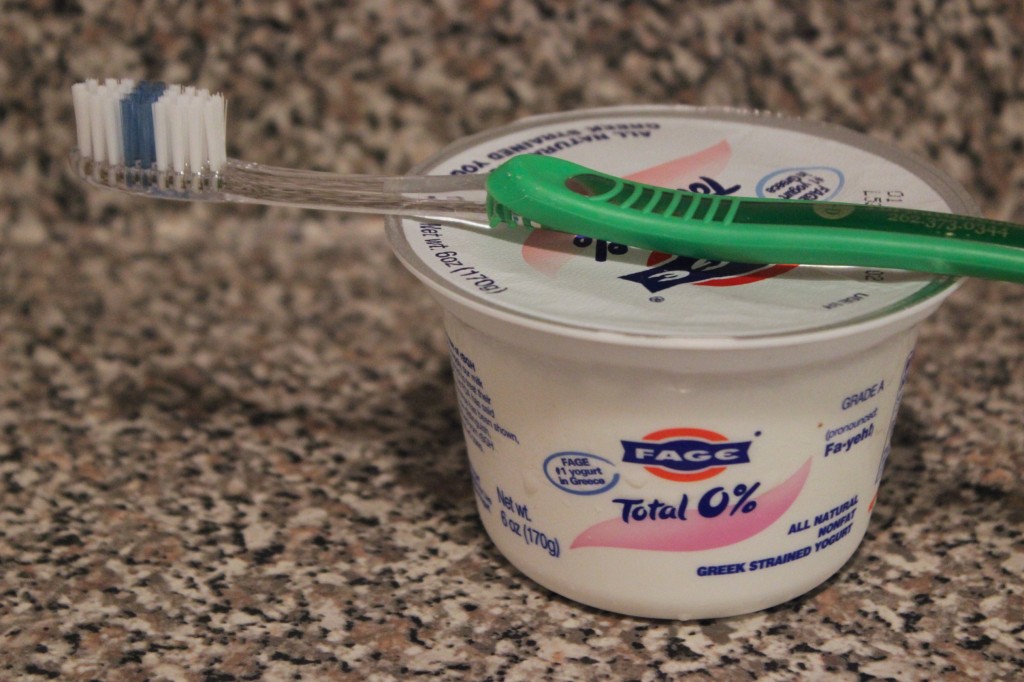
Photo by Katherine Baker
Plain milk and yogurt, like cheese, contain casein. Although not quite as rich in the protective protein as cheese itself, milk and yogurt offer some protective effects, as well as an abundance of phosphorus and calcium, which together form the building blocks of strong bones and teeth.
4. Nuts
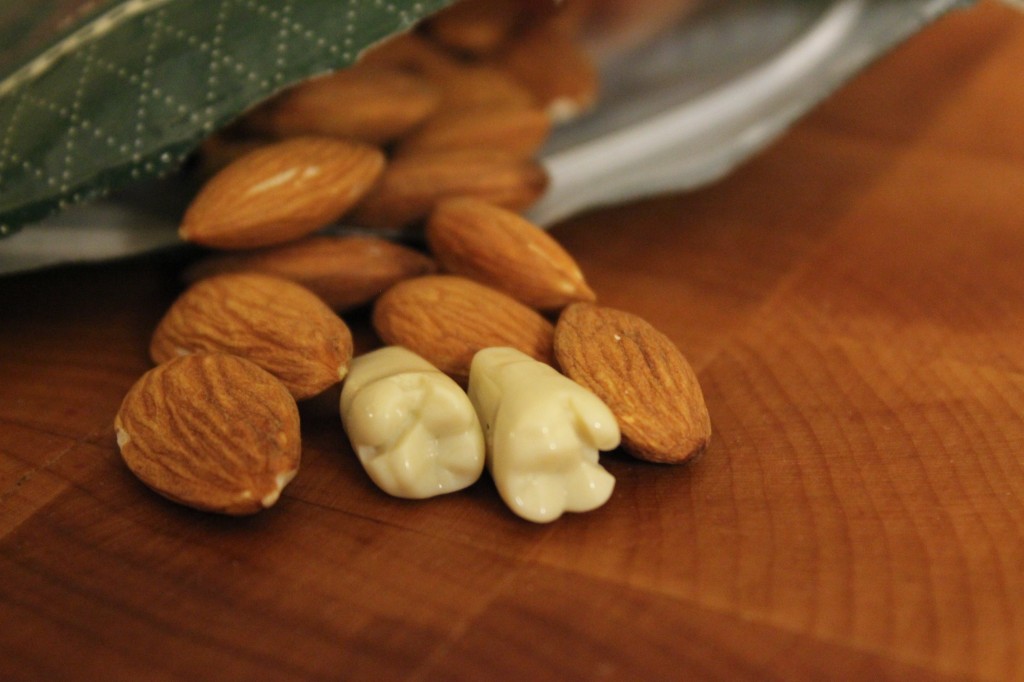
Photo by Katherine Baker
Go nuts! According to the USDA, nuts are considered a non-cariogenic, or non cavity-causing, food, meaning you can munch away without a care. Moreover, many nuts are rich and vitamins and minerals that are protective for teeth and gums. Peanuts and almonds are rich in calcium and vitamin D, and cashews stimulate saliva production, which can restore mouth pH.
5. Popcorn
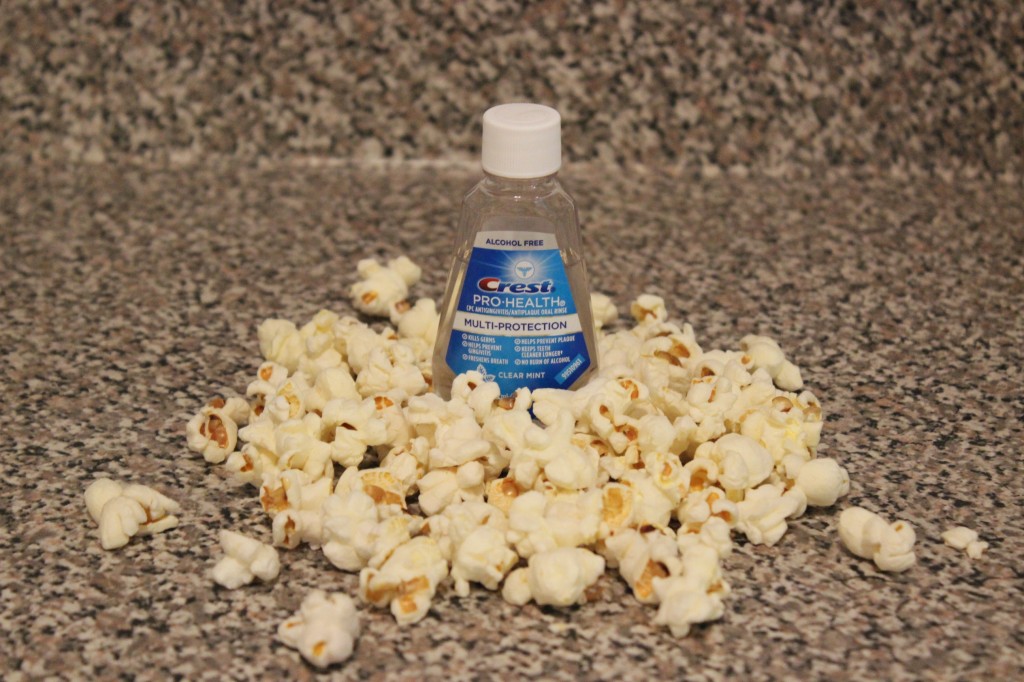
Photo by Katherine Baker
If you’re craving a salty snack, reach for popcorn. A lot of typical snack foods, like potato chips, crackers, and cereal, are surprisingly cariogenic (cavity-causing) due to their high starch content. Popcorn, like nuts, is considered a non-cariogenic or neutral food. Popcorn is also rich in phosphorus and calcium, supporting bone structure.
6. Raw Vegetables
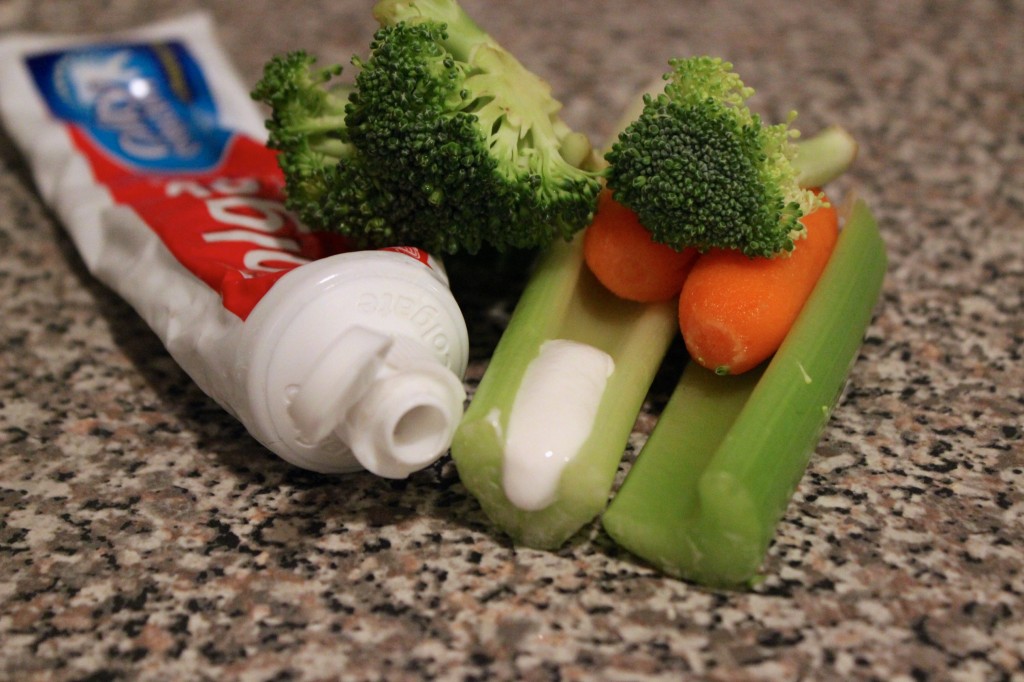
Photo by Katherine Baker
Due to their high fiber content, raw vegetables can stimulate saliva flow by requiring longer chewing times, which can neutralize acid leftover from other foods. Like popcorn and nuts, they are are considered non-cariogenic, so snacking on crudités shouldn’t leave you with any dental woes. Just be aware of sugar-laden dressings and dips.


